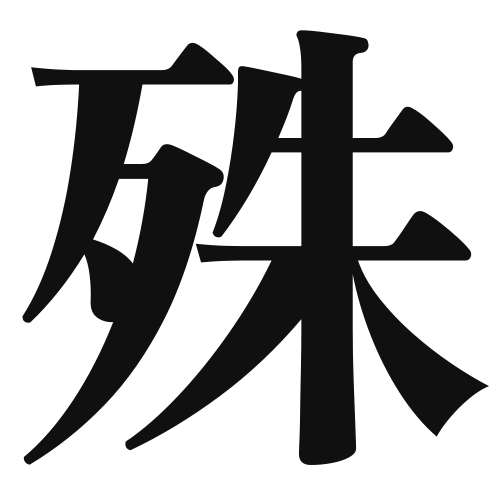1. Overview of Meaning
The kanji “殊” (shu) generally means “special,” “extraordinary,” or “distinct.” It is often used to indicate something that stands out or is different from the norm.
2. Formation and Radical
Formation of the Kanji: The kanji “殊” is a phonetic-ideographic character (形声文字). It combines the meaning of “special” with phonetic elements to convey its sound and meaning.
Radical: The radical for “殊” is “毛” (hair), which is often associated with fine details or distinctions.
3. Examples of Usage
Common Words and Phrases: Some frequently used words that include “殊” are “殊勝” (shusho, meaning “noble” or “commendable”) and “殊に” (shuni, meaning “especially”).
Example Sentence in Daily Conversation: “この料理は殊に美味しいです。” (Kono ryouri wa shuni oishii desu.) translates to “This dish is especially delicious.”
4. Synonyms and Antonyms
Similar Kanji: A similar kanji is “特” (toku), which also means “special” but often implies a unique quality or characteristic. The difference lies in the nuance; “殊” emphasizes distinction, while “特” focuses on uniqueness.
Opposite Kanji: An antonym for “殊” is “普通” (futsuu), which means “ordinary” or “common,” indicating something that does not stand out.
5. Cultural and Historical Background
Relation to Japanese Culture: The concept of “special” or “extraordinary” is significant in Japanese culture, often associated with craftsmanship and attention to detail.
Proverbs and Idioms: An example of an idiom that reflects this idea is “殊の外” (shun no soto), meaning “extraordinarily” or “beyond expectation,” highlighting the importance of exceptional qualities in various contexts.
